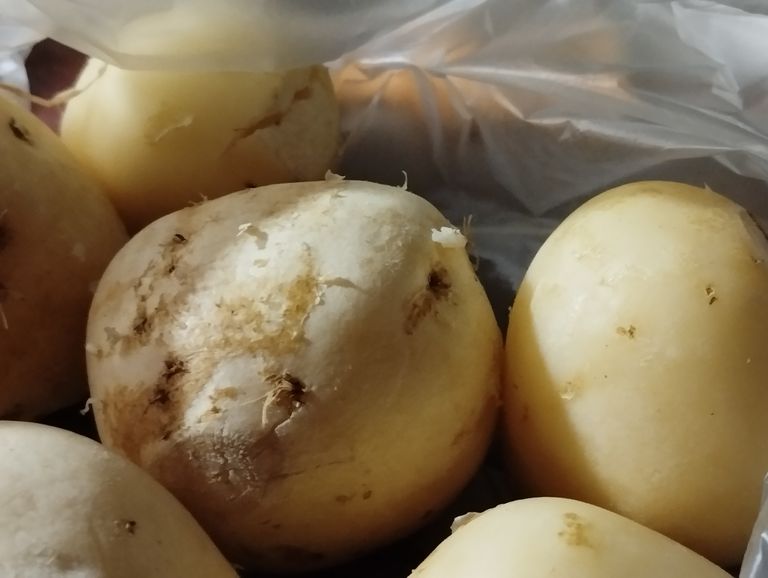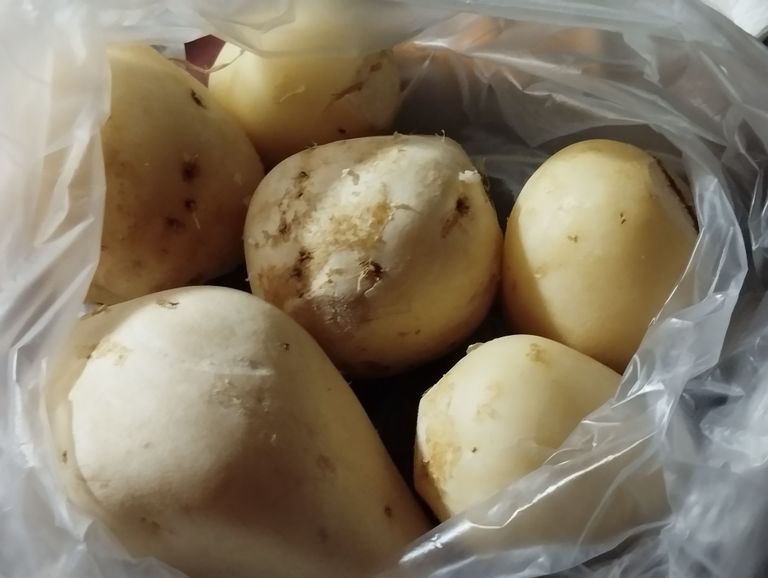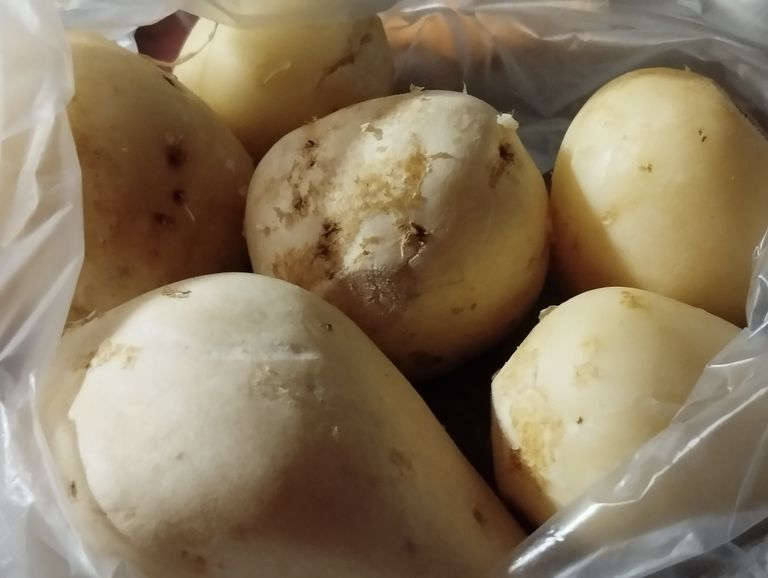
The Benefits of Eating Olives.
Olives, a small yet highly nutritious fruit, have been enjoyed for centuries for their unique flavor and numerous health benefits. Rich in antioxidants, healthy fats, and essential nutrients, olives are a staple in Mediterranean diets and are becoming increasingly popular worldwide. This article explores the numerous benefits of eating olives and how they can enhance overall health.
- Rich in Antioxidants
Olives are loaded with powerful antioxidants like vitamin E, polyphenols, and flavonoids. These compounds help combat oxidative stress caused by free radicals in the body. Antioxidants play a key role in reducing inflammation, improving immunity, and protecting cells from damage, which may reduce the risk of chronic diseases like cancer and heart disease.
- Promotes Heart Health
Olives are an excellent source of monounsaturated fats, particularly oleic acid. These healthy fats are known to lower LDL (bad cholesterol) levels and increase HDL (good cholesterol), reducing the risk of cardiovascular diseases. The polyphenols in olives also improve arterial function, helping maintain healthy blood pressure.
- Supports Weight Management
Despite being rich in fats, olives are relatively low in calories and can help manage weight when consumed in moderation. The healthy fats and fiber in olives promote satiety, reducing overeating and unhealthy snacking. Adding olives to salads, pasta, or sandwiches can make meals more satisfying.
- Improves Skin and Hair Health
The vitamin E and antioxidants in olives protect skin from premature aging and damage caused by UV rays and pollution. Olives also provide hydration and nutrients that keep the skin supple and glowing. Additionally, olive oil derived from olives is often used in hair care to strengthen and nourish hair strands.
- Boosts Digestive Health
Olives are a natural source of dietary fiber, which aids digestion and promotes a healthy gut. They support regular bowel movements and prevent constipation. The compounds in olives may also promote the growth of beneficial gut bacteria, which is essential for overall digestive health.
- Supports Bone Health
Olives contain important minerals like calcium, phosphorus, and magnesium, which are essential for maintaining strong and healthy bones. Regular consumption of olives may reduce the risk of osteoporosis, a condition characterized by weak and brittle bones, particularly in older adults.
- Regulates Blood Sugar Levels
The healthy fats in olives slow the absorption of sugar into the bloodstream, preventing spikes in blood sugar levels. This makes olives a great addition to the diet of individuals with diabetes or those at risk of developing the condition. The antioxidants in olives also play a role in reducing inflammation, which is often linked to insulin resistance.
- Supports Brain Health
Olives and olive oil are often associated with improved brain function. The monounsaturated fats and polyphenols in olives have neuroprotective properties, which may help reduce the risk of cognitive decline and neurodegenerative diseases like Alzheimer's. These nutrients also support better memory and focus.
- Anti-Cancer Properties
The bioactive compounds in olives, including oleuropein and hydroxytyrosol, have been shown to have anti-cancer properties. These compounds inhibit the growth of cancer cells and protect healthy cells from damage. While more research is needed, regular consumption of olives may contribute to a lower risk of certain types of cancer.
- Reduces Inflammation
Chronic inflammation is a major contributor to various diseases, including arthritis, heart disease, and diabetes. The polyphenols and healthy fats in olives have potent anti-inflammatory properties, helping to reduce joint pain and improve overall health.
How to Incorporate Olives into Your Diet
Olives can be enjoyed in various ways, making them a versatile addition to your meals:
Add them to salads, pasta, or pizza.
Use them as a topping for sandwiches or wraps.
Snack on them as they are.
Use olive oil as a dressing, marinade, or cooking oil.
Conclusion
Olives are not just a flavorful addition to meals; they are a powerhouse of nutrients that offer numerous health benefits. From promoting heart health to improving skin and bone health, this fruit is truly a gift of nature. Including olives in your diet can enhance your overall well-being and contribute to a healthier lifestyle. Start enjoying the benefits of olives today and make them a regular part of your meals.


A Comprehensive Guide to Olive Farming: Cultivation, Benefits, and Best Practices
Olive farming, also known as olive cultivation, is an age-old agricultural practice that originated in the Mediterranean region. Over the centuries, it has expanded to various parts of the world due to the high demand for olives and olive oil. In recent years, regions with suitable climates, such as certain areas in South Asia, have begun exploring olive farming as a viable agricultural enterprise. This blog provides a detailed guide on olive farming, including its requirements, benefits, and best practices.
Understanding Olive Farming
The olive tree (Olea europaea) is a hardy, drought-resistant plant that thrives in warm, subtropical climates. It is valued for its fruit, which is used in food products, and for its oil, renowned for its health benefits.
Climatic and Soil Requirements
- Climate:
Olive trees require a Mediterranean-type climate with hot, dry summers and mild winters.
They can withstand temperatures as low as -7°C but are sensitive to frost during flowering.
Prolonged rainfall or high humidity during the flowering season can affect fruit set.
- Soil:
Olives grow best in well-drained, loamy soils with a pH between 6 and 8.
They tolerate poor soils, but waterlogged conditions can harm the roots.
Varieties of Olive Trees
There are hundreds of olive varieties worldwide, broadly categorized into table olives (used for consumption) and oil olives (used for oil production). Some popular varieties include:
Manzanilla: Known for table olives.
Arbequina: Used for high-quality olive oil.
Koroneiki: A small-fruited variety ideal for oil production.
Frantoio: Common in Italian olive oil production.
Steps to Start Olive Farming
- Land Preparation:
Clear the land of weeds and debris.
Test the soil for pH and nutrient levels, and amend if necessary.
- Planting:
Opt for grafted or tissue-cultured saplings for better yield.
Maintain spacing of 5-7 meters between trees to allow adequate sunlight and airflow.
The best time for planting is during the monsoon or early spring.
- Irrigation:
While olive trees are drought-tolerant, young saplings need consistent watering during the first 3-4 years.
Drip irrigation is recommended for efficient water use.
- Fertilization:
Apply organic compost and a balanced fertilizer rich in nitrogen, phosphorus, and potassium during the growing season.
- Pruning:
Regular pruning helps maintain the tree's shape, remove dead branches, and encourage better fruiting.
- Pest and Disease Management:
Common pests include olive fruit flies and scale insects.
Fungal diseases like Verticillium wilt can affect olive trees in humid conditions. Use organic pesticides and maintain good farm hygiene to prevent infestations.
Harvesting and Post-Harvest Care
- Harvesting:
Olives are handpicked or mechanically harvested when they turn greenish-purple.
Harvesting time depends on the intended use – earlier for table olives, later for oil production.
- Processing:
For oil production, freshly harvested olives are cold-pressed to retain maximum flavor and nutrients.
Table olives are cured in brine or salt to remove bitterness before consumption.
Benefits of Olive Farming
- Economic Benefits:
High market demand for olives and olive oil ensures profitability.
Value-added products like flavored olive oils, cosmetics, and soaps boost revenue.
- Health Benefits:
Olive oil is rich in monounsaturated fats, antioxidants, and anti-inflammatory properties, making it a staple in healthy diets.
- Environmental Benefits:
Olive trees combat soil erosion and improve biodiversity in arid regions.
They have a long lifespan, often exceeding 100 years, contributing to sustainable agriculture.
Challenges in Olive Farming
- Climate Sensitivity:
Extreme cold, frost, or prolonged humidity can impact yields.
- Initial Investment:
Setting up an olive farm requires significant investment in saplings, irrigation, and equipment.
- Market Access:
Establishing a supply chain for olive products can be challenging in non-traditional growing regions.
Olive Farming in Non-Traditional Areas
With advancements in agricultural technology and the availability of drought-resistant olive varieties, regions like South Asia are exploring olive farming. In countries like India and Bangladesh, pilot projects have shown promising results, especially in semi-arid regions with proper irrigation systems.
Conclusion
Olive farming is a rewarding venture for those willing to invest in proper planning and maintenance. With the global demand for olives and olive oil rising, this crop offers immense potential for economic growth and sustainability. Aspiring farmers should start small, experiment with varieties suited to their region, and adopt modern farming techniques for long-term success.


The Medicinal Benefits of Olives
Olives, a staple of Mediterranean diets, are not just known for their distinctive taste and culinary uses but also for their remarkable medicinal properties. For centuries, they have been cherished for their health benefits, from boosting heart health to improving skin quality. In this blog, we’ll explore the extensive therapeutic advantages of olives and how incorporating them into your diet can significantly enhance your overall well-being.
- Nutritional Profile of Olives
Olives are a rich source of essential nutrients, including:
Healthy fats: Predominantly monounsaturated fats, which promote heart health.
Vitamins: Vitamin E, a powerful antioxidant, and small amounts of vitamins A, K, and B6.
Minerals: Iron, calcium, magnesium, and potassium.
Polyphenols: Bioactive compounds that combat oxidative stress and inflammation.
These nutrients contribute to the numerous health benefits associated with olives.
- Heart Health Booster
One of the most celebrated benefits of olives is their ability to promote cardiovascular health. The high content of monounsaturated fats and polyphenols in olives helps:
Lower bad cholesterol (LDL): This reduces the risk of artery blockages.
Raise good cholesterol (HDL): Improving overall lipid profiles.
Regulate blood pressure: Polyphenols relax blood vessels and enhance circulation, lowering hypertension risks.
Studies suggest that diets rich in olives and olive oil can significantly reduce the risk of heart disease.
- Anti-Inflammatory and Antioxidant Properties
Olives contain powerful antioxidants such as vitamin E, oleuropein, and hydroxytyrosol. These compounds:
Protect cells from oxidative stress.
Reduce inflammation in the body, which is a key factor in chronic diseases like arthritis, diabetes, and cancer.
Regular consumption of olives can alleviate symptoms of inflammatory conditions and bolster your immune system.
- Skin and Hair Health
Olives, especially olive oil, are a natural remedy for enhancing skin and hair health. The benefits include:
Hydration and nourishment: Vitamin E and healthy fats moisturize and rejuvenate the skin.
Anti-aging effects: Antioxidants combat wrinkles and fine lines.
Strengthening hair: Olive oil nourishes the scalp, prevents dandruff, and promotes hair growth.
Applying olive oil topically or consuming it regularly can yield noticeable improvements in skin texture and hair quality.
- Improved Digestion
Olives play a crucial role in maintaining a healthy digestive system. Their high fiber content:
Promotes regular bowel movements.
Supports gut microbiome health by acting as a prebiotic. Additionally, olive oil can help alleviate symptoms of conditions like acid reflux and gastritis.
- Bone Health
Olives are a natural source of calcium, which is essential for strong bones. Moreover, their polyphenols help:
Prevent bone loss.
Increase bone density. Incorporating olives into your diet can be particularly beneficial for older adults at risk of osteoporosis.
- Diabetes Management
The healthy fats in olives improve insulin sensitivity, making them an excellent choice for individuals with diabetes. They help:
Regulate blood sugar levels.
Prevent spikes in glucose after meals.
Additionally, olives’ anti-inflammatory properties reduce the risk of complications associated with diabetes.
- Cancer Prevention
The antioxidants and polyphenols in olives have been linked to cancer prevention. They:
Neutralize free radicals that cause DNA damage.
Inhibit the growth of cancer cells, particularly in breast, colon, and skin cancers.
While olives are not a cure, regular consumption can reduce the risk of cancer development.
- Weight Management
Olives are a great addition to a weight-conscious diet due to their:
High satiety value: The healthy fats keep you feeling full for longer.
Low calorie count: Despite their rich taste, they are relatively low in calories.
Using olives as a snack or in meals can help curb cravings and prevent overeating.
- Brain Health
The monounsaturated fats and polyphenols in olives protect brain cells from damage. Benefits include:
Enhanced memory and cognitive function.
Reduced risk of neurodegenerative diseases like Alzheimer’s and Parkinson’s.
Including olives in your diet can support long-term brain health.
How to Incorporate Olives into Your Diet
- As snacks: Enjoy whole olives as a healthy snack.
- In salads: Add sliced olives to green salads for an extra punch of flavor.
- With bread: Pair olive oil with whole-grain bread for a nutritious appetizer.
- In cooking: Use olive oil as a cooking medium to enhance the flavor and nutrition of dishes.
- In spreads and dips: Prepare olive tapenade or mix olives into hummus for a delicious dip.
Conclusion
Olives are more than just a delicious addition to meals; they are a powerhouse of nutrients and medicinal benefits. From protecting the heart and boosting brain function to enhancing skin and hair health, olives offer a range of advantages that can improve your quality of life. Embrace the goodness of olives in your daily diet and experience the transformative health benefits for yourself.
For optimal health, choose high-quality olives and extra virgin olive oil to maximize these benefits.
